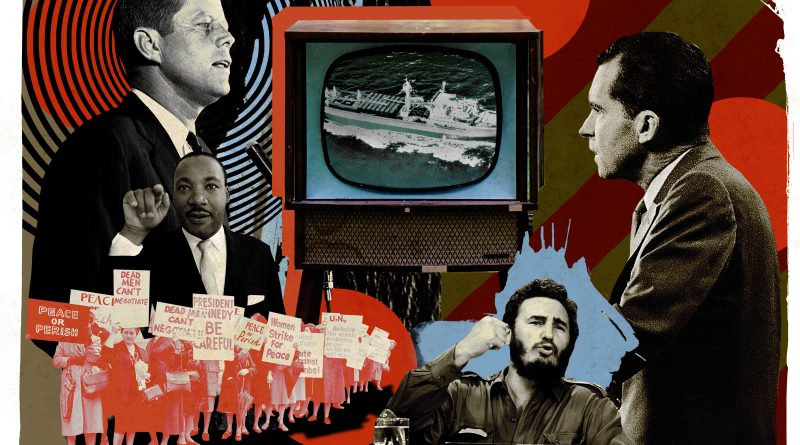JFK, Nixon and the Nuclear War That Might Have Been
[ad_1]

Of course, there were other factors in the race besides the fate of Martin Luther King Jr. Television was now in 90 percent of American homes, opening the door for the first televised presidential debates in U.S. history. That first debate — which drew an audience of some 70 million viewers — is best remembered for Nixon’s sallow appearance and the possibility that bad makeup determined the outcome of the election. But the debate, and the three that followed, also underscored the remarkably thin role that actual issues played in the campaign that year.
The campaign was so devoid of clear ideological battle lines that one JFK acolyte, Harvard professor Arthur Schlesinger Jr., produced a small campaign book called “Kennedy or Nixon — Does it Make Any Difference?” Journalist Murray Kempton wrote, in a phrase that would take on a whole new meaning three years later, that “neither seems a man at whose funerals strangers would cry.”
So, would it have mattered had Nixon won instead of Kennedy in 1960? The answer, for the entire world, is yes.
It’s true that in much of the domestic and foreign policy arenas, it’s difficult to imagine major alternatives to the history that really played out. As Nixon demonstrated when he did become president eight years later, he was no conservative warrior against an overweening federal government; you can thank him for presiding over the creation of the Environmental Protection Agency. Similarly, Nixon, like JFK until his last months, was hawkish on foreign policy and took a stiff anti-Communist line.
But there is one instance where Nixon in the White House rather than Kennedy could have led to a series of wildly different alternatives: Cuba.
At first, they likely would have pursued similar approaches: Nixon almost certainly would have signed off on the Bay of Pigs invasion in 1961, as Kennedy did. Plans were well underway during the last month of the Eisenhower administration, and Nixon was not only supportive but — according to journalists David Wise and Thomas Ross — wanted the invasion to take place before the election, because the toppling of Fidel Castro would have made Nixon’s election a “cinch.” (When Kennedy raised the possibility of such an effort during one debate, a furious Nixon, who believed JFK had used confidential background briefing information to advance the notion, was forced to condemn the idea publicly).
Unlike Kennedy, however, Nixon would have probably provided the air cover that Kennedy did not. Nixon advocated the use of American power throughout his career (he wanted the U.S. to help keep the French in power in Vietnam in 1954). Whether such air cover would have been enough to lead to an overthrow of Castro is doubtful. Castro was at the peak of his power and popularity; the invasion would have only further tarnished the U.S. for its botched coup attempt.
More significantly for the United States, Cuba and the rest of the world is what happened next: the decision by the Soviets put offensive missiles in Cuba.
Some Nixon partisans might argue the Soviet Union would not have gone that route. After all, one explanation for Nikita Khrushchev’s decision to place the missiles was that at a summit in Vienna in June 1961, Kennedy had seemed uncertain, unsure of himself in the face of Khrushchev’s aggressive posturing. (“He savaged me,” Kennedy said later.) That performance helped convince Khrushchev that Kennedy would accept the placing of offensive missiles in Cuba — especially since (by the White House’s own judgment), the missiles would not alter the strategic balance of power. By contrast, Khrushchev had met a more assertive Nixon when they faced off in the 1959
“Kitchen Debate” during Nixon’s visit to Moscow. With “America’s No. 1 Anti-Communist” in the Oval Office, it’s possible that the Soviet leader would have stayed his hand, and there would never have been a Cuban missile crisis.
[ad_2]
Source link
